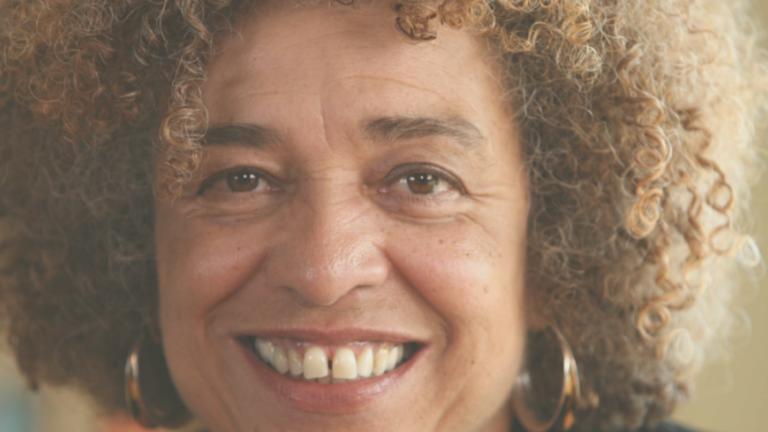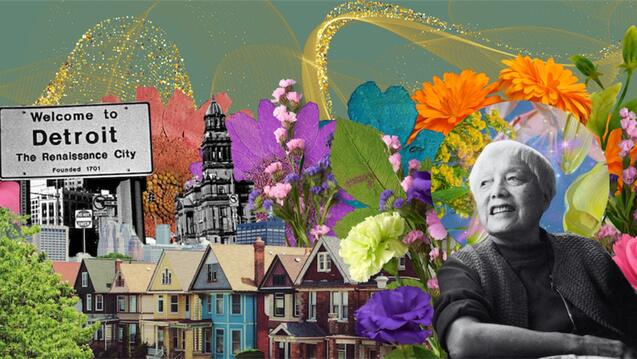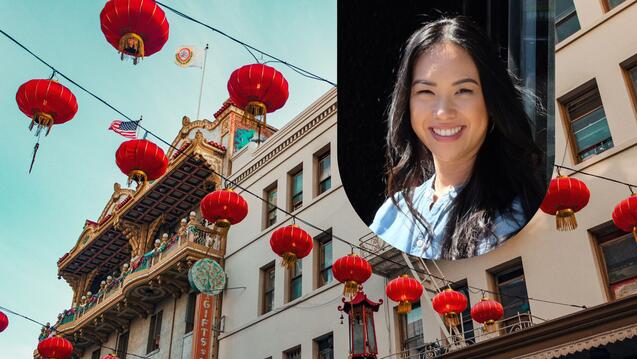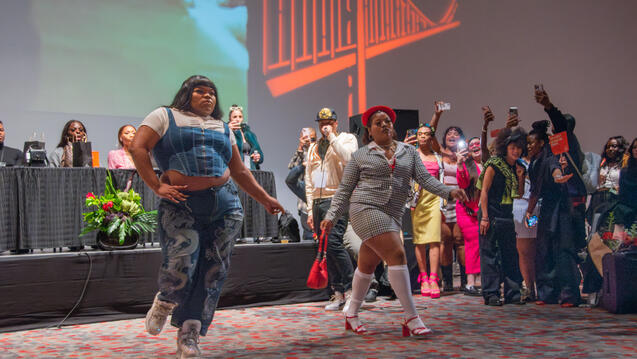
Angela Davis at One with Communities of Struggle
Angela Davis has had a tremendous influence on radical scholarship and movement culture over the past half century
"We have to encourage that sense of community," says Angela Davis in her latest book, Freedom Is a Constant Struggle: Ferguson, Palestine, and the Foundations of a Movement, "particularly at a time when neoliberalism attempts to force people to think of themselves only in individual terms."
In countless public appearances and written works, she is the first to dismiss the preoccupation with her as an individual in favor of a broad, inclusive view of the events and movements that have shaped her public life for more than 50 years.
A hallmark of Davis' character is to redirect fascination with her iconic status toward structural concerns. In a 2010 appearance at the New York Public Library, in response to an audience member's question about her classic Afroed profile adorning T-shirts, Davis deftly pivoted into a reflection on how younger generations invoke the spirit of collective struggle.
This is a fitting approach for Davis. "It was the organizing of people all over the world that secured my freedom," Davis says today. "I owe my life to radical social movements."
"Free Angela! " was a rallying cry of the global left in the early '70s, following Davis' being fired from her first teaching job for her membership in the Communist Party; being targeted by the FBI for her activity in campaigns to free political prisoners; and subsequent imprisonment on bogus but life-threatening charges.
The movement and landmark court case that led to Davis' acquittal are captured in Shola Lynch's illuminating 2012 documentary Free Angela and All Political Prisoners. The film takes its title from the committee assembled to work in Davis' defense. Even at the time, those final four words in the group's name were added on Davis' insistence.
In nearly half a century, her commitment to movements for radical change has not flagged-"radical," as Davis herself is known for saying, meaning simply "grasping things at the root." Davis' analysis of social conditions dives beneath the surface of ideology to the underlying root systems where movements for freedom connect: from sexual violence to institutional violence, prison abolition to transgender justice, Ferguson to Palestine.
Freedom Is A Constant Struggle
The 10 essays, interviews, and addresses making up Freedom Is a Constant Struggle were issued between early 2013 and mid-2015, within which period the Black Lives Matter movement emerged. As the subtitle of the book promises, Davis consistently makes connections between this U.S.-based movement and global struggles against racist policing.
"If one imagines these vast expressions of solidarity all over the world as being focused only on the fact that individual police officers were not prosecuted, it makes very little sense," Davis stated in a speech to activists in Turkey in January 2015. "We have to embrace projects that address the sociohistorical conditions that enable these acts."
In June of that same year, Davis was in St. Louis, Missouri, honoring activists from nearby Ferguson for refusing "to drop the torch of struggle" many months after the murder of Michael Brown by police. If not for these activists, Davis said, "we might not have achieved such a broad consciousness of the work that will be required to build a better world."
With Davis in St. Louis was her younger sister, Fania Davis, a leader in the field of restorative justice. Twenty-three years old and pregnant at the time of her sister's capture, the younger Davis was inspired to become a civil rights attorney through her activities organizing in the U.S. and abroad as co-coordinator of the committee to free her sister.
"It was the powerful experience of witnessing the unfoldment of this mass movement and its victories," Fania Davis says, "that planted the seed of a radical optimism and belief in the ability of people, no matter the odds, when they are organized, to transform their lives." She is an alum of the Integral Studies doctoral program at CIIS and sits on the Board of Trustees. She has called for truth and reconciliation processes in Ferguson and beyond, in the mode of post-apartheid South Africa, to aid in healing the deep-seated trauma of racist violence in the U.S.
"This radical optimism remains with me today, and it is what allows me, after all these decades, to continue to press forward as a restorative justice activist in the conviction that through a radical healing justice strategy, we can indeed bring about large-scale social transformation."
An Activist in Academia
When Angela Davis was first fired from UCLA, then-Governor Ronald Reagan swore that she would never again teach in the University of California system. Now, she is a Distinguished Professor Emerita at UC Santa Cruz, having retired in 2008 from a rich teaching career that took her to all corners of the UC system and beyond.
In Germany and San Diego, Davis studied with Frankfurt School philosopher Herbert Marcuse; she has written and spoken about his influence on her pedagogy and engagement as an activist in academia. From him she learned that knowledge could be practical, could transform the world, did not exist in a dimension off by itself; and that politics need not be separate from intellectual life.
"She weaved close readings of philosophical texts together with the historical and political context of their emergence, and always from a perspective of a politics of liberation," recalls Targol Mesbah, Anthropology and Social Change faculty at CIIS. Mesbah studied with Davis as a PhD student at UC Santa Cruz. "She wasn't making an argument for how we should be bringing theory and practice together," says Mesbah. "She was just doing it."
Davis' words, in Freedom Is a Constant Struggle and elsewhere, reflect this marriage of theory and praxis. Through the book's syllabus of contemporary moments, a reader channels Davis' compassionate yet firm urgings for us to push ourselves-to adjust the lens of our analysis to see liberation struggles across the globe as interconnected with our own.
In reading Freedom Is a Constant Struggle, one gets a sense not only of the stunning breadth of Davis' career as an educator and a public intellectual but also, perhaps, various sources of her optimism-fuel for the hopeful lilt that has remained a staple of her speaking voice since her earliest recorded public addresses.
Optimism and Organizing
"I'm incredibly optimistic about the organizing that is going on right now," Davis says. She has witnessed state-condoned violence, hatred, and willful ignorance, to which she has lost numerous comrades. She has also witnessed the work of some of the most creative, radically oriented activists on the planet-generations of them. Her finger is ever set to the pulse of radical change.
"The young people who are organizing today as part of groups like Black Lives Matter, the Dream Defenders, and the Black Youth Project 100, as a few examples, are doing so in smart, fresh, innovative ways, some of which we couldn't have imagined even a decade ago."
This shift is no doubt due in part to Angela Davis' tremendous influence on radical scholarship and movement culture over the past half century.
"I don't know whether I would have survived had not movements survived, had not communities of resistance, communities of struggle," Davis said in a 2014 interview. "It is in collectivities that we find reservoirs of hope and optimism."
Related Academic Programs
M.A. in Women, Gender, Spirituality, and Social Justice and Ph.D. in Women's Spirituality
Related News
Last fall, Human Sexuality doctoral students and faculty members presented two panels at the National Women's Studies Association (NWSA) meetings.
Transformative Leadership alum Cynthia Huie, M.A. '24, brings creativity and connection to the San Francisco small-business community.
For the second year, CIIS’ Center for Black & Indigenous Praxis joined Generations, a celebration of Black LGBTQIA+ cultures in the Bay Area.



